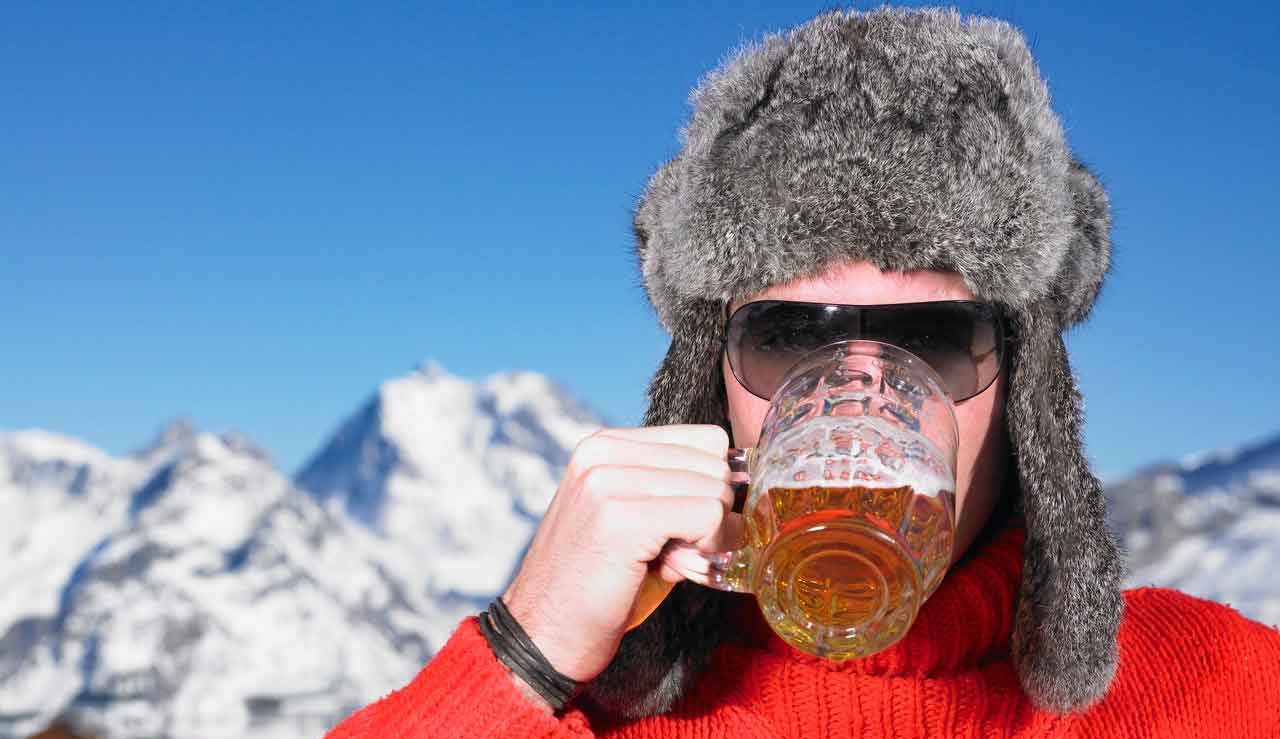Don’t Drink Alcohol in Cold Weather

That warm feeling you get when you sip a cocktail isn’t as healthy it seems.
Eggnog and hot buttered rum are spirits of the season that make your insides feel toasty on cold, winter days. But do these tipsy concoctions really warm you up or merely trick you into feeling all cozy inside?
The rush of warmth you feel when you sip a rum and coke or glass of wine is blood flowing to your skin’s surface, the result of widened (dilated) blood vessels in the area. The feeling is deceiving, however. As blood flows to your skin, it’s diverting away from essential organs in your body’s core.
“So while it feels like you’re warm because your skin is warm, your vital organs aren’t as warm as you might think they are,” says Colin Drummond, MD, a professor of addiction psychiatry at King’s College London. Instead of warming up, your body actually loses heat at a faster rate after you’ve had a drink or two. Alcohol also keeps you from shivering, one of your body’s built-in heat generators when you’re cold.
High-calorie regrets
Winter — and particularly the holiday season – is known for its indulgences. Parties, dinners out, and family get-togethers are filled with food temptations. Though alcohol is served in a glass, not on a plate, a couple of drinks can increase your daily calorie count as much as a meal. Have three glasses of wine, and you’ve downed 360 calories — more than a cheeseburger, and nearly as much as a slice of cheesecake. Two cups of eggnog will set your New Year’s weight loss resolution back by nearly 500 calories.
Not only does alcohol come with its own high calorie count, but it also makes you eat more calorie-rich foods. In part, this is because a few drinks lower your inhibitions, so you’re less hesitant about ordering an extra helping of cheese fries or a large T-bone steak. Alcohol also makes your brain respond more readily to the smell of those fries and steak, a phenomenon known as the “aperitif effect.”
“Alcohol exposure can both increase the brain's sensitivity to external food cues, like aromas, and result in greater food consumption,” said William J.A. Eiler II, PhD, of the Indiana University School of Medicine’s Departments of Medicine and Neurology. “Many alcoholic beverages already include empty calories, and when you combine those calories with the aperitif effect, it can lead to energy imbalance and possibly weight gain.”
Poor judgment
Once you’ve consumed a few glasses of beer, wine, or spirits, in addition to being cold and overfed, you’ll lack the judgment and coordination needed to drive home. Alcohol slows reaction time and dulls decision-making abilities. Your driving skills start to suffer long before you feel drunk. Being out of it behind the wheel is especially concerning when roads are slick with ice and snow. And when your blood alcohol level gets too high, you can simply pass out — not something you ever want to do behind the wheel.
Even if you hand over your car keys to a friend and head home on foot, you could be in trouble. Frigid temperatures and a deceptive feeling of warmth can be a deadly combination. “Drinking too much leads to bad decisions,” says Drummond. “If you drunkenly decide to walk home across a snowy field instead of getting a taxi, you’re putting yourself at risk. Hypothermia can take hold quickly and can even lead to death.”
Sensible drinking
No matter what the season, the recommendations on alcohol are the same. Keep it moderate, limiting yourself to one or two drinks a day. Or at least pace yourself. Sip your drink slowly and keep track of how much you’ve had. And if you’re trying to stay warm outside on a winter’s day, do it with a warm coat or blanket, not a rum and Coke.
Updated:
March 30, 2020
Reviewed By:
Janet O’Dell, RN